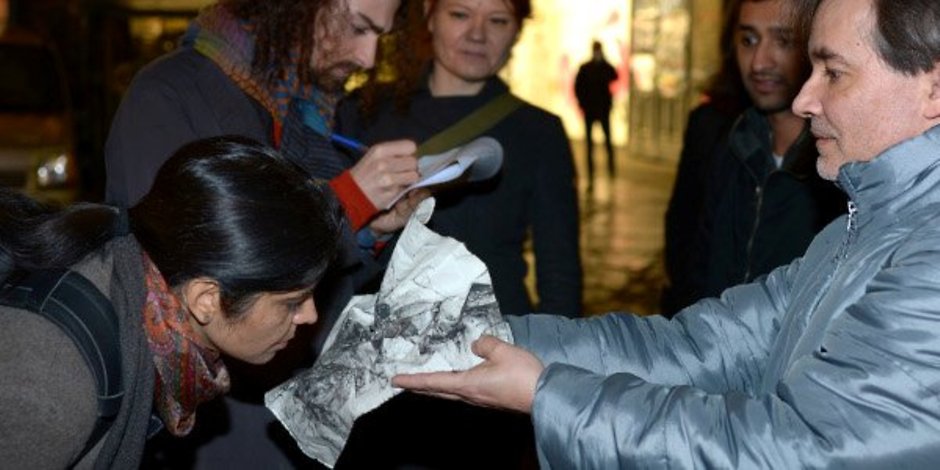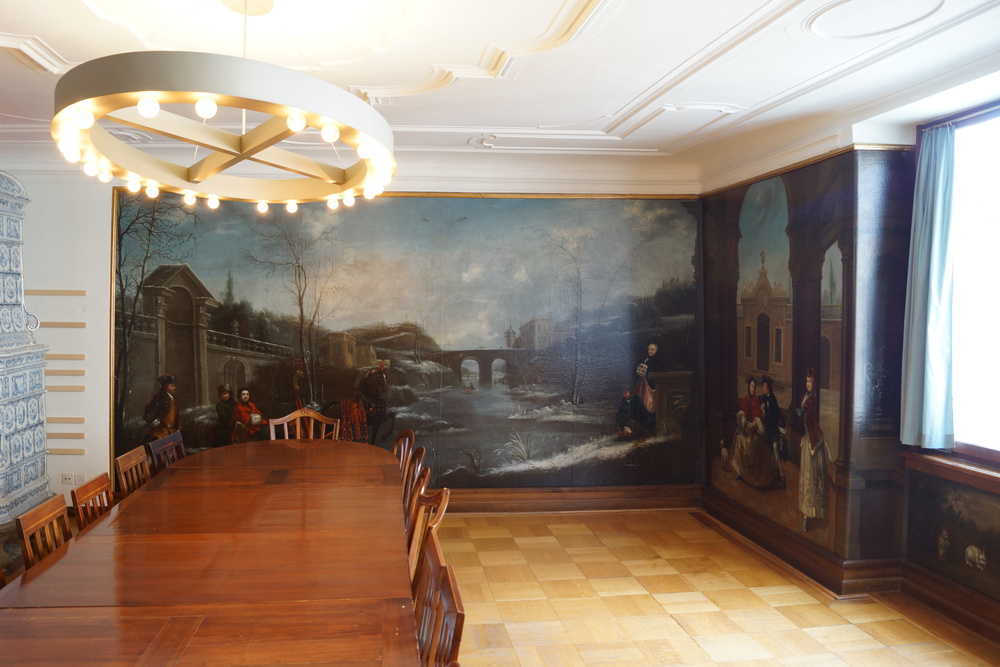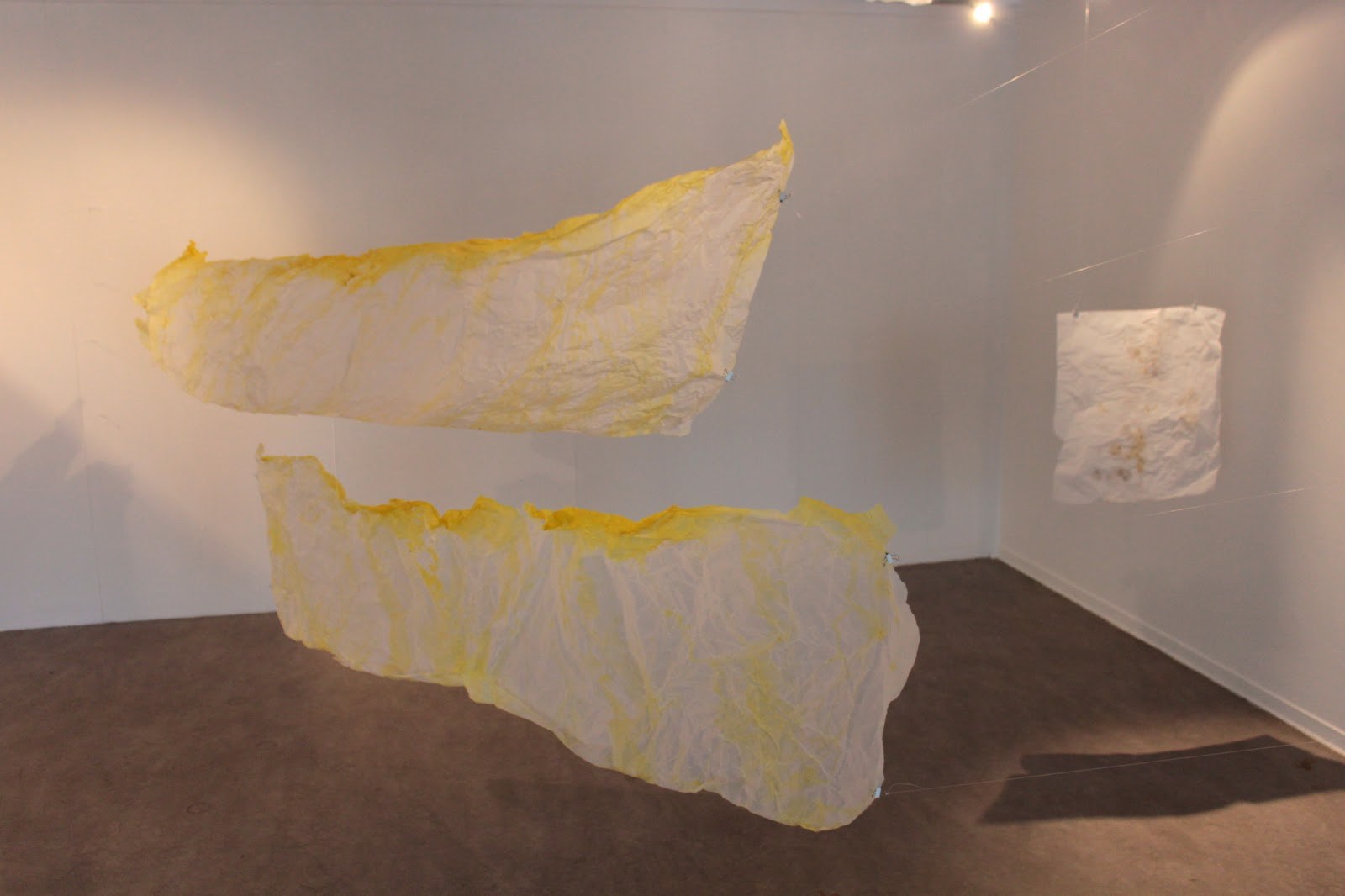“There is no wonder for those who can not be surprised.” – Â MARIE von EBNER-ESCHENBACH
All posts by Scent Culture Institute: Smelling in Culture, Business & Society
Spektrum’s “Smell Lab”
The Smell Lab is a monthly meeting space in Berlin for those interested in experimenting with the sense of smell. It is part of Spektrum, “a space of convergence for cultural communities and trans-disciplinary groups emerging and operating in and off Berlin”. Continue reading Spektrum’s “Smell Lab”
Spektrum’s “Smell Lab” in the Berliner Zeitung
The Smell Lab is a monthly meeting space in Berlin for those interested in experimenting with the sense of smell. It is part of Spektrum, “a space of convergence for cultural communities and trans-disciplinary groups emerging and operating in and off Berlin”. And it has now been featured in an article (in German) in the Berliner Zeitung!
The Smell Lab has been the inspiration for us at SCI to launch something similar in Zurich: the Scent Culture Club. Our launch meet-up will be in a couple of weeks at the Karl der Grosse Center in the heart of Zurich. We hope it’ll be met with the same degree of interest and recognition as the Smell Lab in Berlin!
Madrid MDCXXXV (1635) at Lope de Vega’s Home-Museum
Carlos RamÃrez-Pantanella is a Spanish architect and artist who has recently produced Madrid MDCXXXV (1635), an olfactory installation at Lope de Vega’s Home-Museum in Madrid. The installation attempts to reconstruct the olfactory atmosphere of Spanish Golden Century. Continue reading Madrid MDCXXXV (1635) at Lope de Vega’s Home-Museum
Umberto Eco R.I.P.:Turn scent into a stimulus for critical reflection!
Umberto Eco, the Italian cultural theorist and novelist who became the author of best-selling novels, notably the blockbuster medieval mystery “The Name of the Rose,†died last week in Milan. Eco was a contributor to our thinking on scent culture.
Continue reading Umberto Eco R.I.P.:Turn scent into a stimulus for critical reflection!
Turn scent into a stimulus for critical reflection!
Umberto Eco, the Italian cultural theorist and novelist who became the author of best-selling novels, notably the blockbuster medieval mystery “The Name of the Rose,†died last week in Milan.

Eco was a contributor to our thinking on scent culture. According to various internet entries Umberto Eco once noted the olfactory qualities of books: “I love the smell of book ink in the morning.†This love for the smell of books is, in fact, shared by many writers, including as Ray Bradbury, author of Fahrenheit 451, and was the subject of a recent post of ours.
And in his groundbreaking Theory of Semiotics, Eco thinks of scents as part of the semiotic field. He refers to Baudelaire’s “code of scents†and coins the phrase “olfactory signsâ€: “If there are scents with a connotative value in an emotive sense then there are also odors with precise referential values.”
In a short essay on television Eco calls for a critical reflection on the social and cultural consequences. In fact, we later paraphrased a key sentence from Eco’s essay when starting the Scent Culture Institute and drafting our foundation statement: “Western Culture & Society will only develop further, if it turns scent into a stimulus for critical reflection – not an invitation for hypnosis.”
References:
Eco, U. (1976). A Theory of Semiotics. Bloomington: Indiana University Press.
Eco, U. (1993). “Can television teach?†In M. Alvarado, R. Collins, & E. Buscombe (Eds.), The Screen education reader: cinema, television, culture: 95–107. New York: Columbia University Press, p. 97.
Launching the Scent Culture Club
Scent & The Most Hated Retailer
Abercombie & Fitsch has been nominated the most hated retailer. This post explores how this might be related to the company’s scent strategy. Continue reading Scent & The Most Hated Retailer
In the Exhibition “AETHER”, Smell is Required
Our time is especially marked through its mediality. Vision and hearing are well supported; but what about our sense of smell? Sebastian Pralle, master student of Prof. Ulrich Eller at the Braunschweig University of Art, has just devoted in his exhibition “AETHER” to this question. Continue reading In the Exhibition “AETHER”, Smell is Required
Why Google Maps Shouldn’t Forget About Smell
Researchers find that humans can navigate through smell alone—so why are we so dependent on screens? Continue reading Why Google Maps Shouldn’t Forget About Smell







